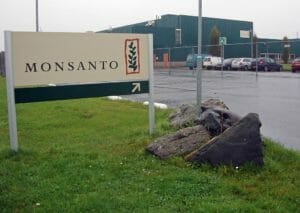GOP Food Stamp Cuts Help the Rich, Hurt the Poor and Starve the Economy
As part of the New York Times series on “The Great Divide,” Nobel Prize-winning economist Joseph Stiglitz dives into the pernicious link between campaign money, farm subsidies and starving Americans. It doesn’t speak well of us as a nation, or a political system.
If House Republicans succeed in their quest to slash the federal Supplemental Nutritional Assistance Program — food stamps — while preserving farm subsidies, they would both exacerbate economic inequality in the country and add yet another drag on the economy, a Nobel Prize-winning economist says.
Joseph Stiglitz argues in The New York Times under the headline, “The Insanity of Our Food Policy,” that the consolidation of wealth in the hands of the few has also led to a consolidation of political power, leaving low-income Americans both cut out of the Great Recession recovery and with little political recourse to do anything about it. He writes:
The proposal is a perfect example of how growing inequality has been fed by what economists call rent-seeking. As small numbers of Americans have grown extremely wealthy, their political power has also ballooned to a disproportionate size. Small, powerful interests — in this case, wealthy commercial farmers — help create market-skewing public policies that benefit only themselves, appropriating a larger slice of the nation’s economic pie. Their larger slice means everyone else gets a smaller one — the pie doesn’t get any bigger — though the rent-seekers are usually adept at taking little enough from individual Americans that they are hardly aware of the loss. While the money that they’ve picked from each individual American’s pocket is small, the aggregate is huge for the rent-seeker. And this in turn deepens inequality.
The nonsensical arrangement being proposed in the House Republicans’ farm bill is an especially egregious version of this process. It takes real money, money that is necessary for bare survival, from the poorest Americans, and gives it to a small group of the undeserving rich, in return for their campaign contributions and political support. There is no economic justification: The bill actually distorts our economy by promoting the kind of production we don’t need and shrinking the consumption of those with the smallest incomes. There is no moral justification either: It actually increases misery and precariousness of daily life for millions of Americans.
Stiglitz argues that farm subsidies made sense during the Great Depression, when they first arose, to try to shore up rural economies — home then to 40 percent of the country — and domestic food production. These days, the beneficiaries of the subsidies tend to be large corporations that don’t need the help, and the subsidies wind up perverting the economy.
And although the farm subsidies no longer work as an anti-poverty measure, food stamps have become one of the main sources of support for the growing ranks of impoverished Americans. Yet House Republicans want to keep the farm subsidies — rewarding campaign contributors and the wealthy — and slash an additional $40 billion over 10 years in food stamps. It is robbing the poor to give to the rich, with rather dire ripples, from making it harder for the poor to become economically productive members of society, to preserving a food system heavily reliant on products that erode health — products often used by the poor because of their low costs. It’s no mystery why low-income Americans have a higher incidence of adult Type II diabetes. According to Stiglitz:
By cutting back on food stamps, we are ensuring the perpetuation of inequality, and at that, one of its worst manifestations: the inequality of opportunity. When it comes to opportunity, America is doing an alarmingly bad job, as I’ve written before in this series. We are endangering our future because there will be a large coterie of people at the bottom who will not live up to their potential, who will not be able to make the contribution that they could have made, to the prosperity of the country as a whole.
All of this exposes the Republicans’ argument in favor of these food policies — a concern for our future, particularly the impact of the national debt on our children — as a dishonest and deeply cynical pretense. Not only has the intellectual undergirding of debt fetishism been knocked out (with the debunking of work by the Harvard economists Carmen M. Reinhart and Kenneth S. Rogoff that tied slowed growth to debt-to-G.D.P. ratios above 90 percent). The Republicans’ farm bill also clearly harms both America’s children and the world’s in a variety of ways.
For these proposals to become law would be a moral and economic failure for the country.
Well, it’s not like Washington hasn’t embraced moral and economic failure before.
—Posted by Scott Martelle.
Your support matters…Independent journalism is under threat and overshadowed by heavily funded mainstream media.
You can help level the playing field. Become a member.
Your tax-deductible contribution keeps us digging beneath the headlines to give you thought-provoking, investigative reporting and analysis that unearths what's really happening- without compromise.
Give today to support our courageous, independent journalists.






You need to be a supporter to comment.
There are currently no responses to this article.
Be the first to respond.